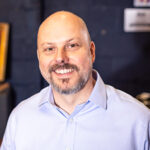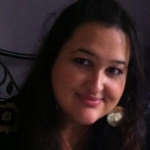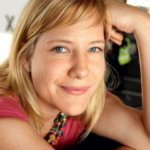Sunday Morning Workshops
 Using Imago Relationship Therapy to Empower Your Couples Work
Using Imago Relationship Therapy to Empower Your Couples Work
Ian Tomlinson
Come to this workshop and learn the basics of the Imago Relationship Therapy model used primarily with couples.
Ian will cover:
- Basic beliefs of the model
- How the theory connects with the practice in the therapy room
- The Imago Dialogue process
By the end of the workshop you will see how Imago Relationship Therapy encourages validation and empathy as part of its central processes and how, by working with this model you empower your couple to shift their relationship towards closer connection without having to continue therapy.
Ian Tomlinson is a UKCP registered psychotherapist working with individuals and couples. He is an Advanced Imago Relationship Therapist and Workshop Presenter. As a Member of The Imago International Training Institute, Ian trains therapists in Imago Relationship Therapy and supervises them to certification and beyond.
 Working with Trauma and Addiction - workshop full
Working with Trauma and Addiction - workshop full
Amanda Onwuemene
This workshop will focus on my work with clients who have learnt in childhood to distract and dissociate from their trauma and anxieties through the adoption of various addictions.
I will discuss how we work together, not to stop the addiction but to heal the trauma.
Bio:
I've worked in private practice for 16 years using Transactional Analysis and Integrative Psychotherapy methodologies.
During that time I have worked with a number of clients with both personality disorders and addictions.
 Players on the World Stage
Players on the World Stage
Uzma Khan
The Pyramid of Hate will be explored within a TA and Integrative framework to help understand how a negative bias towards the ‘other’ can be a predictor of acts of violence and atrocities.
Emphasis will be on the relationship between the intrapsychic process, changing world events and global connectivity.
Aim of Workshop:
For therapists to gain a better insight when working with their own or a client’s unconscious biases.
Provide practical support and signposting opportunities for therapist.
Promote inter-group Okness through awareness, discourse and dialogue.
Uzma Khan is an experienced practitioner who has worked in mental health for over 15 years helping a variety of clients suffering from a range of psychological and psychosocial issues. Her main interests are working in community based projects with Muslim the BAME (Black, Asian and Minority ethnic) projects. She currently works with MIND (UK Mental Health Charity) and New MIND Counselling Service (NMCS) where she is the Deputy Chair for the board of Trustees.
Presently she is one of three Clinical Lead’s within IHSAAN (Ihsaan.org.uk) which is the first specialised psychotherapy and counselling service in England that provides psychological therapies compatible with Islamic psychology. This is a holistic integrative service that is language, culturally and spiritually sensitive and caters to the needs of Muslim clients suffering from mild to moderate mental health issues in West Yorkshire (England).
Uzma’s interests include working in a TA and integrative framework. The ethos driving her work is that healing comes from awareness and change.
 Symbiosis to Self Agency - workshop full
Symbiosis to Self Agency - workshop full
Steff Cooke
In this workshop we will be looking at the journey out from Symbiosis to a healthy position of Self Agency and Autonomy. We will look at the different stages of Symbiosis and how to get out of the stuckness that keeps people bound in the unhealthy symbiotic place. This workshop will be a mixture of experiential and didactic content.
Stephanie Cooke has a wide range of experience, working with children and adolescents. She began in the early eighties working as a Social Worker specialising in children and adolescents in all areas of childcare. At this time in her career she also worked in a CAMH’s unit as a counsellor for disturbed adolescents and children who had been traumatised and abused. Stephanie also worked for Norfolk Childrens projects with young offenders, working with them on projects within their local communities. Stephanie has worked as a counsellor and psychotherapist for twenty years, and presently works at the Manchester Institute as a Trainer and Supervisor and has been working as psychotherapist since the early 1990s.
 Nurturing the Healer
Nurturing the Healer
Melita Mihajlović Košak
This is a workshop on self-care of psychotherapists. Very often in the demanding and emotionally charged field of psychotherapy therapists easily prioritize their clients’ well-being at the expense of their own. Together we will try to address this crucial aspect of the profession and create a space where we can explore and enhance our self-care practices.
Melita Mihajlović Košak is a psychologist, a certified Transactional Analytical Psychotherapist (EATA), Provisional Teacher and Supervisor (PTSTA) and mindfulness teacher. She is working with adult clients and supervisees in her private practice. She is collaborating with Institute for integrative psychotherapy and counselling, Ljubljana, implementing workshops for students, included in four year trainings of Transactional Analysis and Integrative Psychotherapy. For the past 15 years she has been organizing Mindfulness-Based TA programs at the institute and has been leading the groups that are included in different mindfulness programs. In her work approach she combines transactional analysis and mindfulness.
Sunday Afternoon Workshops
 When therapy feels bad: a reflection on research of harm in psychotherapy
When therapy feels bad: a reflection on research of harm in psychotherapy
Carina Badger
The literature is dominated by studies supporting the efficacy of psychotherapy (albeit less so in relation to Transactional Analysis). Yet whilst estimates of ‘unwanted effects’ of psychotherapy range from 3% to 15% the harmful potential of psychotherapy is much less examined. This workshop derives from Carina's final-year research project for the Manchester Institute for Psychotherapy's Diploma in Integrative Transactional Analysis.
This workshop addresses:
- What the research says in terms of harm in psychotherapy and what clients don't tell us
- Distinguishing different categories of harm
- A philosophical approach to harm and whether its avoidance is always desirable (even if avoidance is possible)
- The intersection of negative impacts of psychotherapy, self-agency and ethical practice
Carina's underlying motivation is to locate herself between Hargaden's notion of the 'good enough’ therapist (to let go of perfection, allow for mistakes and make way for the unconscious) (Hargaden, 2015); yet in taking risks, remain vigilant for the potential of harm (Eusden, 2021). She draws in particular on the generous writings of Bill Cornell and the wisdom of Mark Widdowson.
The workshop will include didactic material, interactive activities and reflective discussion.
Carina Badger is a practising Solicitor, qualified counsellor registered with the BACP and final-year student at the Manchester Institute for Psychotherapy. She has a small private practice in South Manchester. As a lawyer with a spirited 'Be Perfect' Driver, she is prone to some anxiety about ethical practice.
Free Will and Self Agency in Psychotherapy - workshop full
Paul Mitchell
Determinism is arguably the fundamental tenet of modern approaches to Psychology. Our scientific framework relies on a basic assumption of cause and effect, how we have become who we are in relation to what we have experienced.
What then of Free Will, Self-Agency, Creativity, our Ability to do Otherwise?
Leaning in to the work of amongst others, Philosopher Robert Kane, Psychoanalyst Otto Rank and Academic Psychiatrist John Callender we will explore a need for approaches to Psychotherapy which stress “The Will”, “Individual Agency”, “Autonomy” and our ability to influence or own “Self-Forming Actions”.
This workshop will explore both the Philosophical and Practical dimensions of Free Will and Self Agency in Psychotherapy
Paul Mitchell is a Psychotherapist, Supervisor, Trainer and Mental Health Nurse with over 40 years’ experience working with Individuals, Couples, Groups, Families and Organisations.
For over 15 years he was the Clinical Lead for Personality Disorder Services in the North Wales NHS, Mersey Care NHS and within Independent Hospital settings. For over 40 years he has worked as a Principal Psychotherapist, Mental Health Commissioner, Group Therapist, Psychotherapy Trainer, Organisational Consultant, CMHT Manager, Inpatient Unit Manager, CPN and Mental Health Nurse.
Paul has an Independent Practice based in North East Wales.
 Dreams – Illusion – Control Workshop Full
Dreams – Illusion – Control Workshop Full
In this workshop we will explore dreaming from the perspective of different therapeutic modalities. The workshop will include teaching, discussion, and experiential exercises.
Exploring how dreams may amplify unconscious messages in need of conscious attention alongside the phenomenological importance of working with dreams in the therapy room.
Sava Allott is a UKCP registered psychotherapist and works from the Manchester Institute for Psychotherapy in Chorlton, Manchester.
Her training was in Transactional Analysis from an Integrative Perspective and she has a continuing passion in the subject's of dreams, dream analysis, mythology and alchemy.
 Religious, spiritual and Belief Identity in the psychological and arts therapies: (un)comfortable bedfellows?
Religious, spiritual and Belief Identity in the psychological and arts therapies: (un)comfortable bedfellows?
Mandy Carr
The report into religious and belief diversity and the common good in Britain, notes, ‘Much greater religion and belief literacy is needed in every section of society, and at all levels. The potential for misunderstanding, stereotyping and oversimplification based on ignorance is huge’ (Butler-Sloss, 2015, p.8). The importance of the notion of intersectionality in acknowledging complexity and power imbalances of self, also underpins Mandy’s approach and aims to take into account the multiple forms of identity that impact life outcomes. (Collier and Eastwood, 2021). Her recent doctoral research highlighted ways in which participants from a variety of backgrounds, may experience an inner monologue of assumptions others might be making about their beliefs or background.
The session will start with a short presentation, explaining the main principles and findings of Mandy’s research. This will be followed by a workshop which aims to engage participants in briefly and safely exploring their own religious/spiritual/belief selves and to find out more about each other, through playful connection and in the spirit of curiosity. Participants will be invited to use games, visualisation, gesture and movement, creative writing or drawing to explore their commonalities and differences. There will be opportunities to work as a whole group and individually, as well as processing experiences through small and large group discussion. Every activity is offered by invitation having been fully explained, so that informed decisions can be made about whether to actively participate or feedback insights in the final plenary.
Finally, the group will consider:
* What might be the implications if religious and spiritual aspects of identity are unconsciously overlooked, repressed or discouraged in psychotherapy?’
* Can practice be improved in this area? In what ways?
Dr Mandy Carr is an HCPC registered arts psychotherapist (drama), trainer and clinical supervisor. Formerly a senior lecturer in dramatherapy at Anglia Ruskin University in Cambridge, she has recently completed a professional doctorate in which she explored the connections between religion, spirituality, belief and therapy. Her background as a Liberal Jew from Liverpool is a key factor driving her passion for widening inclusion in society. In her 11 years as convenor of the British Association of Dramatherapists’ Equality and Diversity Committee, she co-ordinated the development of the organisation’s ‘Intercultural Good Practice Guidelines’.
A range of publications include 'Dramatherapy and Religion: (Un) comfortable Bedfellows? In Honour of Dr Roger Grainger' (with Ditty Dokter) and Dramatherapy 39, No.1, pp.16-28, Routledge and Dramatherapy 39, No.3 Special edition focusing on the needs of LBGTQ+ clients and therapists, co-edited with Ryan Valadas, both published in 2018.
 Restoring Agency after a Trauma
Restoring Agency after a Trauma
Elena Gens
“…Despair is suffering without meaning.”
~ Viktor E. Frankl
After an acute traumatic experience, our clients find themselves shattered, often with a strong feeling of helplessness, loss of control and a wounded sense of dignity. Yet there is a lot of evidence showing that successful adaptation after a trauma is widely correlated with the subjective perception of agency. (Which, in existential tradition, is believed to be strongly associated with the sense of meaning).
The above-mentioned Frankl’s idea is shared by most representatives of existential approach in psychotherapy. However, after a traumatic event, most often we need to go through a few other steps before we manage to find back meaning.
The sudden shock of a trauma leads to ruptures of our clients’ contact with themselves and the world. In our work, we need to address and restore this contact in different dimensions: physiological, emotional, cognitive and social. Only once our client has a good “dialogue” with himself and the world, he can reestablish connections with values and meaning.
In our workshop we will discuss a model for processing trauma which includes these multiple elements and explore together different ways in which we can support our client to regain internal and external contact at different levels. The material offered will be majorly based on our recent experience of accompanying war refugees and witness trauma, however, this workshop will be interactive, and the participants will be invited to share and discuss their cases and experience.
Elena Gens is an existential psychotherapist and supervisor (AEAPP, Moscow; GLE-International, Vienna), co-trainer in existential analysis. Leaving behind 12 years of practice and 5 years of teaching in one of the leading Moscow universities, Elena moved out of Russia in 2022 after the beginning of the Russian-Ukrainian war and for the last 2 years had been living in Milan, Italy, and practicing online. A significant part of her practice over this last period included working with clients and refugees that suffered from the situation in Ukraine, Russia and Israel.

